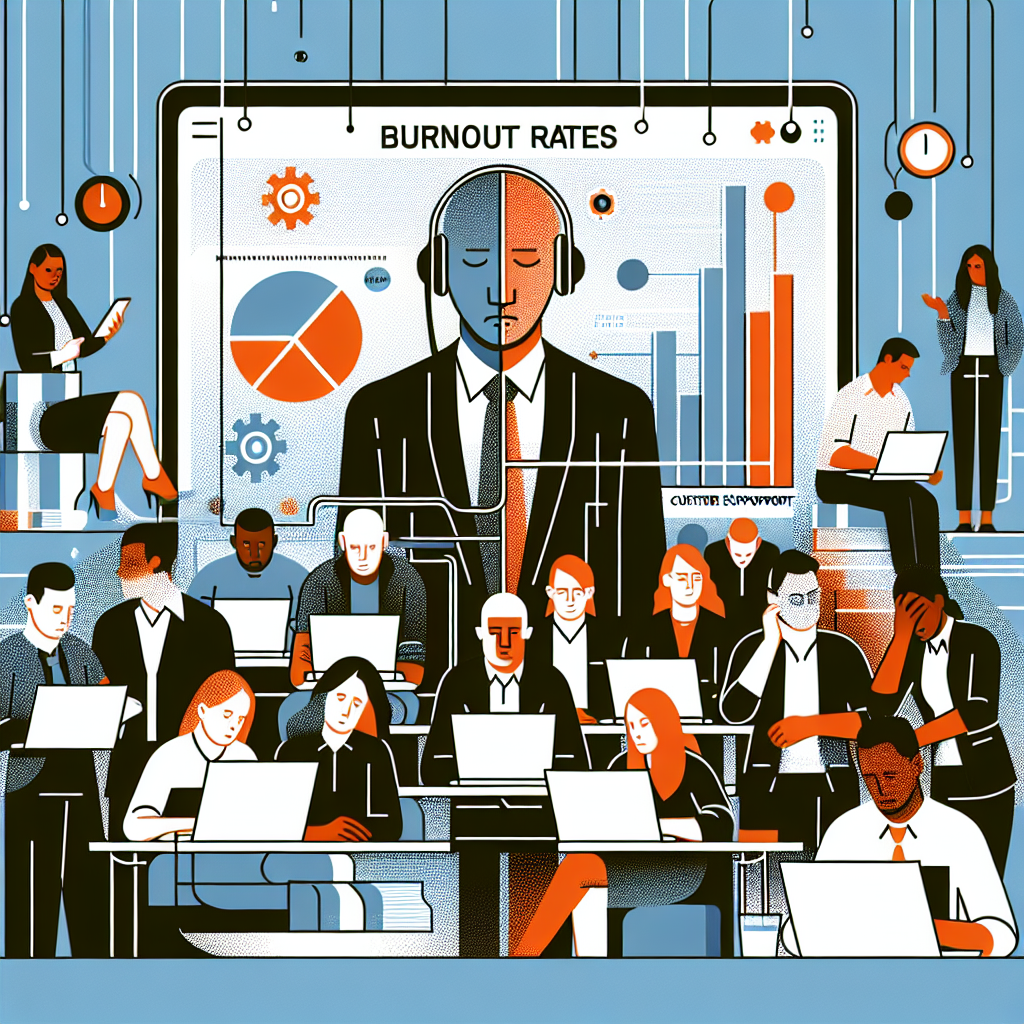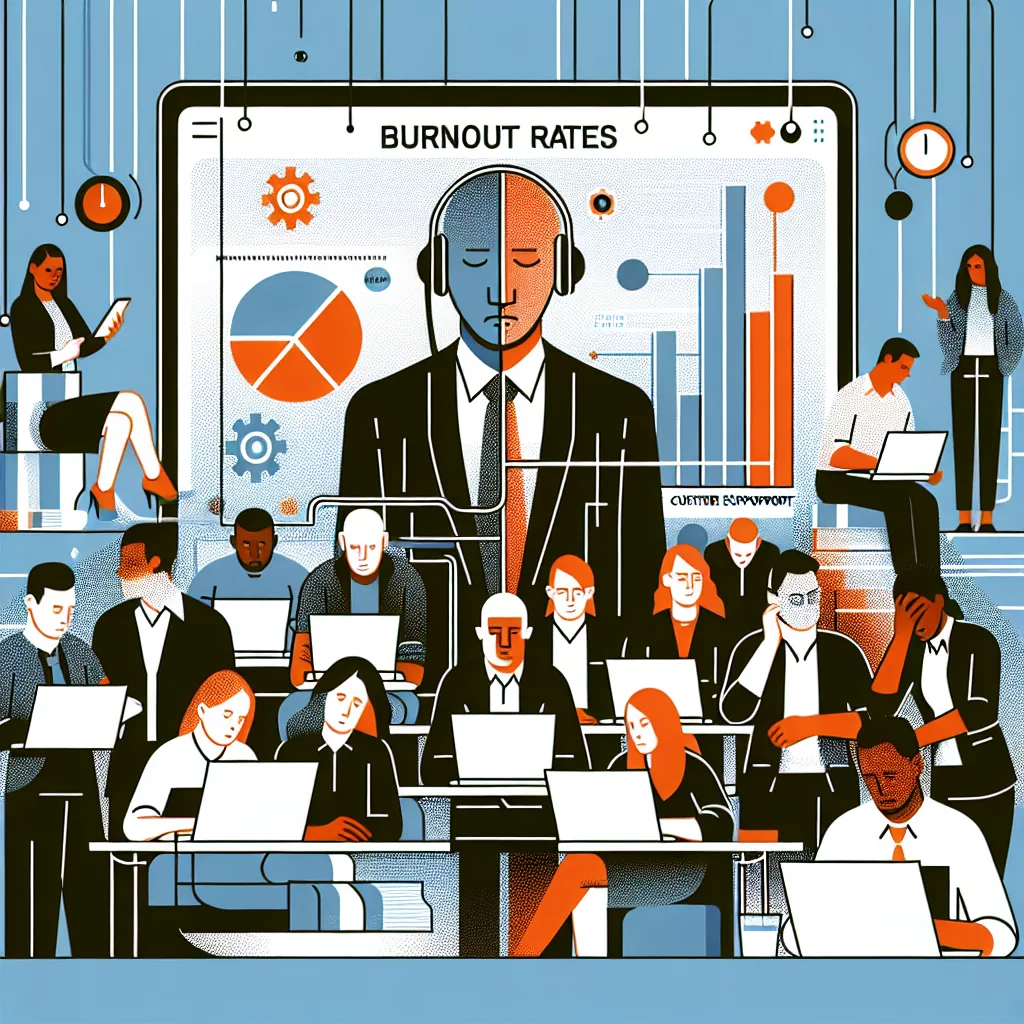The Customer Support Engineer role has a high burnout risk due to relentless problem-solving and demanding customer interactions that challenge your resilience.

- High volume of customer interactions daily.
- Constant pressure to resolve issues quickly.
- Frequent exposure to negative customer feedback.
- Lack of control over work schedule.
- Minimal career advancement opportunities.
- Emotionally demanding work environment.
- Repetitive tasks can lead to monotony.
Research on career burnout statistics indicates that Customer Support Engineers experience burnout levels at a moderate rate.
Reasons Customer Support Engineers burnout
According to the science to date there are key reasons people burnout at work. Here’s our top reasons why Customer Support Engineer in the Technology category has a burnout risk of Moderate:
A career as a Customer Support Engineer can be challenging, and you might find yourself facing burnout for several reasons. One primary factor is the high stress environment. You are often required to resolve complex issues quickly while interacting with frustrated or upset customers. This constant pressure can be emotionally draining.
Another reason is the repetitive nature of tasks. Although each issue or customer might be different, the core activities you engage in can become monotonous. This repetitiveness might eventually lead to disengagement and decreased satisfaction in your work.
The role often involves long working hours. Software issues and customer needs don’t adhere to a 9-5 schedule. You might find yourself working odd hours or being available round the clock, disrupting your work-life balance.
Dealing with unrealistic performance expectations is a common issue in customer support roles. Metrics such as response time, first-call resolutions, and customer satisfaction scores are often strictly monitored. This can exert pressure and elevate stress levels.
Moreover, insufficient training can leave you feeling ill-equipped to handle complex customer issues, leading to frustration and anxiety. Without the proper tools or knowledge, tackling these challenges might seem overwhelming.
Finally, lack of career progression opportunities might cause burnout. If you feel stuck without clear growth or advancement pathways, you might become disengaged and lose motivation.
Burnout rate data for Customer Support Engineer/Technology
Data on burnout among Customer Support Engineers in the technology industry is limited but growing. The demands of rapid technological changes and the constant need for problem-solving can lead to high stress levels. A study published on PubMed highlights the mental health challenges faced by IT professionals, where burnout is a significant concern.
Burnout symptoms often include emotional exhaustion and reduced personal accomplishment. The support role’s pressing nature exacerbates these challenges, making it a focal point in occupational health studies. For detailed insights, you can refer to sources like the World Health Organization’s section on workload in technology (https://www.who.int/mental_health/evidence/burn-out/en/) and analysis available on Healthline, which addresses stress in tech jobs (https://www.healthline.com/health/mental-health/career-burnout) as of 2024.
Do you have experience of Burnout as a Customer Support Engineer or in Technology?
Share your story about Customer Support Engineer burnout on our share your story page.
Burnout in Technology
Career Burnout Rates > Burnout in Technology > Customer Support Engineer Burnout


